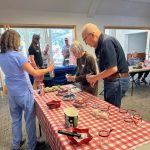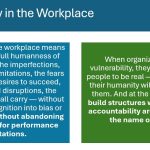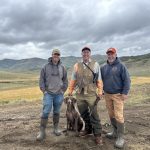Caregivers learn from each other when loved ones struggle with dementia
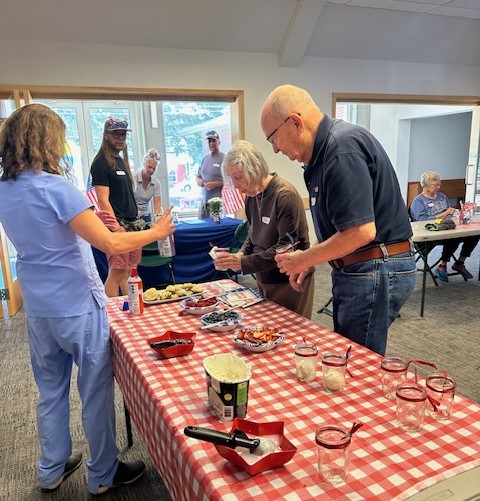
Blue Skies Nursing/Courtesy photo
Every month a small group of caregivers gather at the Steamboat Springs Community Center to talk and support each other because someone they love is gradually declining and slipping away from them.
Throughout the years of the support group the participants have changed, often because their loved ones died from the devastating impacts of Alzheimer’s disease, a common type of dementia. Then, new caregivers come for support, and caregivers who have learned from and were supported by others help the new people to the group.
Steamboat Springs resident John Hendrikse, who works in the health care industry and whose grandmother had dementia, has volunteered for four years as the facilitator for the support group sponsored by the Colorado Chapter of the Alzheimer’s Association. Mostly, he said, he observes as caregivers help each other with conversations, resources and ideas.
“That’s what makes the group so great, the folks who are new hearing from peers, people who were just there,” Hendrikse said.
The group members talk about everything from the struggle of having to sell a spouse’s car who can no longer drive to learning how best to patiently address the situation when the person they care for repeatedly loses items, becomes frustrated or upset, or asks the same questions over and over.
“Despite my efforts, I continue to struggle with better communication skills,” one caregiver in Steamboat noted recently. “It is traumatizing to not recognize your life-long partner.”
Hendrikse stressed the first thing caregivers should know is they are not alone in the community because support groups, including a new group at the Senior Social Center in Craig, provide a place to share their feelings with other people going through a similar situation. He said many people come to the group after noticing something is off with their loved one or after doctor says their loved one may have dementia.
“Really what they are there for are next steps, what should I expect going forward and what resources are available,” Hendrikse said.
To show support for families and friends dealing with dementia, including the most common type of Alzheimer’s disease, the community is invited to the annual Walk to End Alzheimer’s scheduled for Sept. 13 at West Lincoln Park in Steamboat Springs. The event will begin with registration and activities at 9 a.m. followed by a group walk of about 1 mile at 10 a.m.. More information and registration are online at Act.alz.org/Steamboat.
Funds raised at the walk are used to support the Alzheimer’s Association efforts ranging from webinars to videos. For questions: vllombardi@alz.org.
Alzheimer’s Association, Colorado Chapter, Angel Hoffman, alhoffman@alz.org – connections to caregiver support groups in Steamboat and Craig
Alzheimer’s Association 24/7 helpline, 800-272-3900
My ALZ Journey free app, Alz.org/help-support/resources/my-alz-journey, provides support and guidance
Memory Café, monthly at Heart of Steamboat United Methodist Church in Steamboat, presented by Blue Skies Nursing, RSVP requested at Blueskiesnursing.com/event-list
Dementia Together, DementiaTogether.org, provides virtual sources for education, support groups, help@dementiatogether.org or 970-305-5271
Vintage Area Agency on Aging, Yourvintage.org/find-services/caregiver-support, offers financial assistance of $2,000 per year for caregiver respite care
Caregivers have to work hard to maintain patience as they watch the person they love change due to irreversible brain degeneration that causes disruptions in memory, cognition, personality and other functions that interfere with everyday activities. Stress, isolation, anxiety and depression can be common for a caregiver and their loved one.
Arvada-based dementia coach Kay Adams with Compassion Works taught a caregiver’s support workshop in June in Steamboat Springs called, “No Need to Go Alone: The Emotional Challenges of Dementia Caregiving and Accepting Help for the Journey.”
Adams, a medical social worker for 25 years, advised that to help keep a person suffering from dementia calm and reassured, the caregiver may need to change conversational habits from “I can’t believe you lost your keys again,” to instead, “I’m sorry, let’s find them together.”
If a caregiver becomes defensive and angry or asks questions the dementia patient is not able to understand or answer, the patient can become more agitated. Confusion and frustration can increase when the loved one with dementia does not have the inability to remember or understand a conversation. Caregivers may compound stress levels by saying things such as “I just told you,” or “don’t you remember?”
The struggles to help someone with dementia may be physical or financial, but most often, the caregiver struggle is emotional.
“Caregiver wellness is huge,” Hendrikse said. “You can’t take care of someone else if you are not taking care of yourself. Allow for emotions good and bad and humor as well. If you don’t laugh, you cry, so keeping a good sense of humor is important.”
The Alzheimer’s Disease Research foundation points to a 2025 study that estimates a 42% lifetime risk of dementia after age 55. An estimated 7.2 million Americans older than 65 have Alzheimer’s disease. Almost 10% of U.S. adults age 65 and older have dementia while another 22% have mild cognitive impairment.
Alzheimer’s organizations, caregivers and experts have learned, experienced and amassed pages of advice for caregivers, including some of these commonly recommended steps.
Create innovative ideas to keep the person with dementia physically active and socially engaged, ranging from attending a Memory Café to getting outside to walk the dog together. Group exercise classes at all levels are available in the community, or try something new such as using an adult tricycle.
Maintain a daily, familiar routine to comfort and reassure the person with dementia including letting the person perform simple tasks to stay as independent as possible, accounting for flexibility and realistic goals.
Focus on what can be done in the moment today and adapt as needed because the disease changes over time.
Take advantage of tools to stay organized — with the person with dementia helping as much as possible — such as using a large calendar, utilizing a smart speaker and placing a large digital clock nearby. One resource for assistance tools is the Alzheimer’s Store at Alzstore.com.
To increase and confirm understanding, caregivers can match their cadence of speaking to the loved one, do not interrupt and practice using longer pauses between shorter, simpler sentences. Caregivers can notice visual cues and nonverbal communication in their loved one and should be mindful of a busy or loud environment that might add to confusion.
Caregivers can practice reflective listening and try to respond without reacting by saying things such as, “tell me more about it.” Experts say arguing with a person with dementia is counter-productive because the dementia mind is confused and scared.
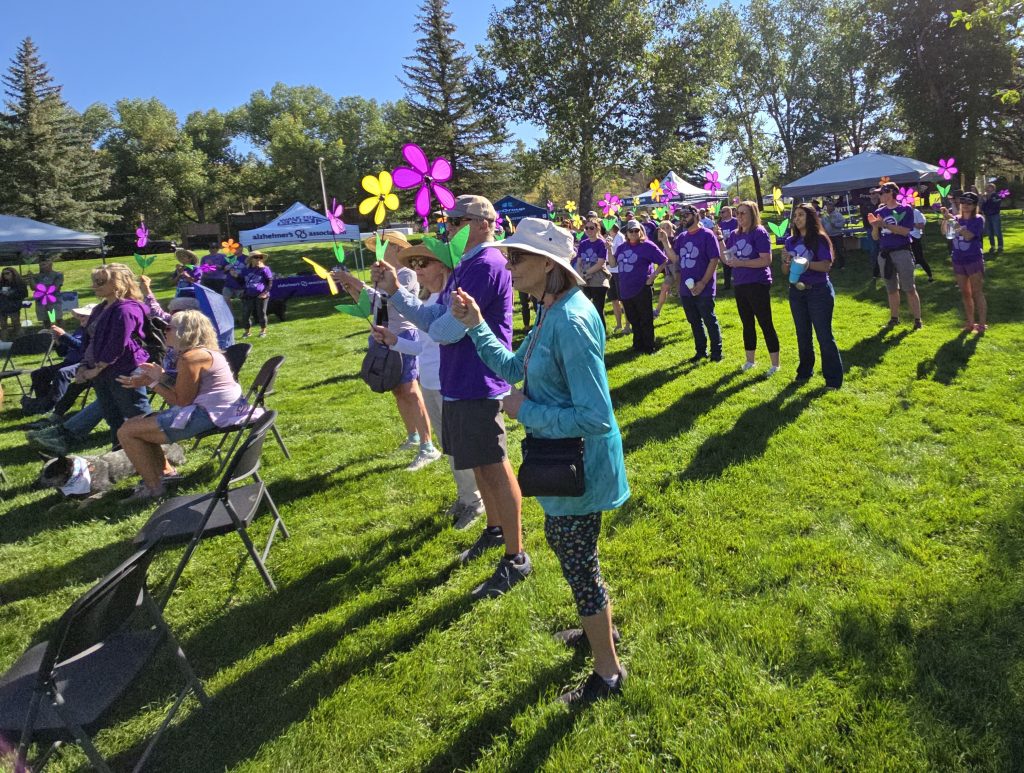
To reach Suzie Romig, call 970-871-4205 or email sromig@SteamboatPilot.com.

Support Local Journalism

Support Local Journalism
Readers around Steamboat and Routt County make the Steamboat Pilot & Today’s work possible. Your financial contribution supports our efforts to deliver quality, locally relevant journalism.
Now more than ever, your support is critical to help us keep our community informed about the evolving coronavirus pandemic and the impact it is having locally. Every contribution, however large or small, will make a difference.
Each donation will be used exclusively for the development and creation of increased news coverage.


